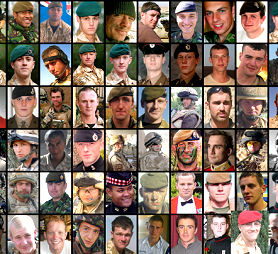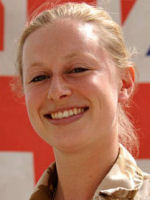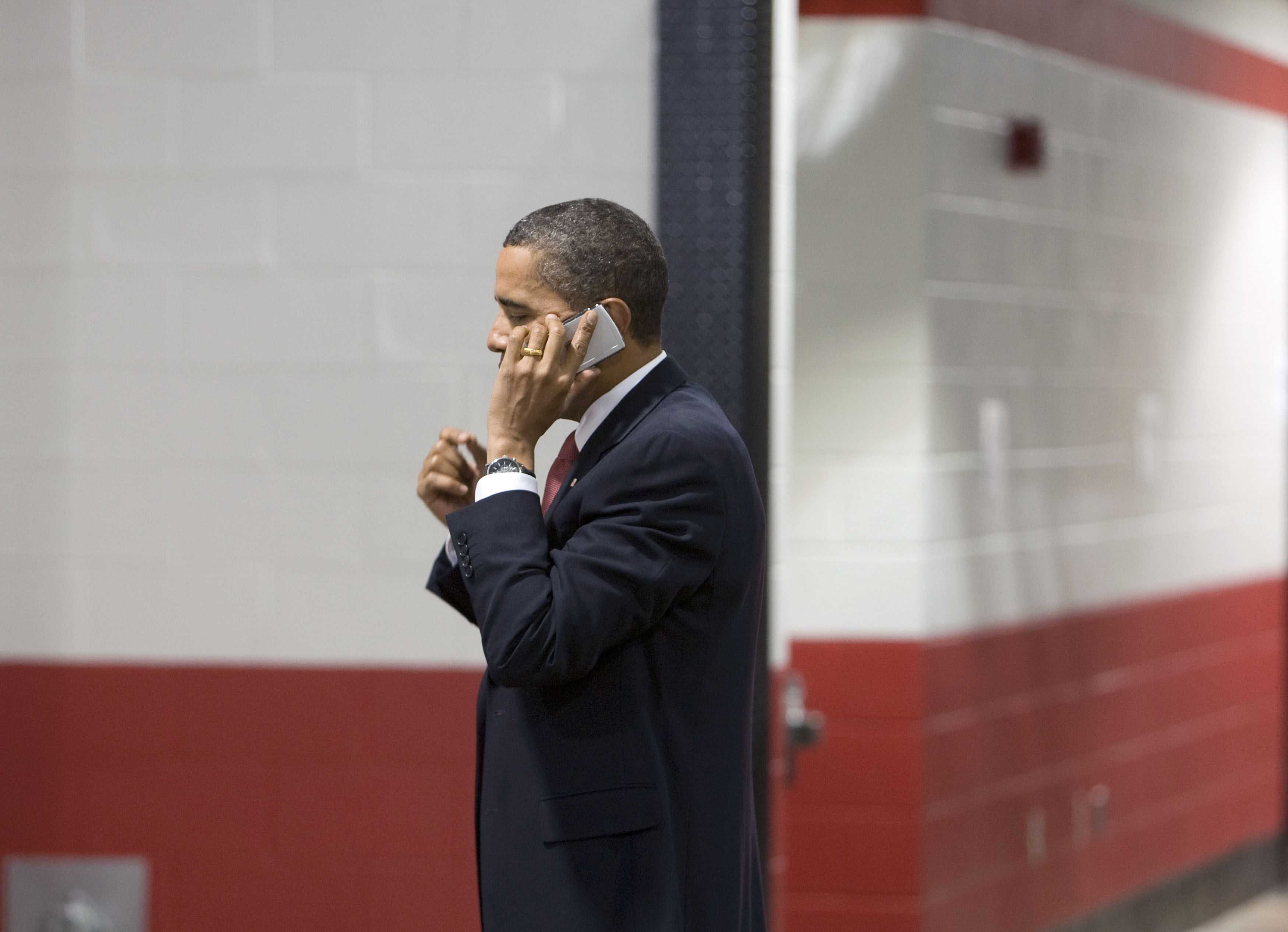300th British soldier killed in Afghanistan war
Updated on 21 June 2010
As a royal marine is confirmed as the 300th British fatality in the Afghan conflict, Channel 4 News analyses Britain's military strategy in the country, and hears from a wife still mourning the loss of her soldier husband.

The marine, part of 40 Commando Royal Marines operating in Sangin, died in New Queen Elizabeth Hospital, Birmingham yesterday.
The news was broken today after the soldier's next of kin were informed.
Major Renny Bulmer, of 40 Commando, said:
"Our thoughts are with his immediate family who were with him at the hospital. His courage and sacrifice will not be forgotten. We will remember him."
'No less tragic than the 299 that came before'
Earlier today, Prime Minister David Cameron said:
"It is desperately sad news, another family with such grief and pain and loss."
"Of course the three hundredth death is no more or less tragic than the 299 that came before. But it is a moment for the whole country to reflect on the incredible service and sacrifice and dedication that our armed services give on our behalf."
"We are paying a high price for keeping our country safe, for making our world a safer place. We should keep asking why we're there and how long we must be there.
"The truth is we're there because the Afghans are not yet ready to keep their own country safe and to keep terrorists and terrorist training camps out of their country.
"That's why we have to be there. But as soon as they're able to take care and take security for their own country that is when we can leave."
Why the UK cannot pull out of Afghanistan
Despite the tragic landmark of 300 British dead, former British forces commander in Afghanistan Colonel Richard Kemp tells Channel 4 News the UK cannot afford to leave the country until its objectives are achieved:
"The death rate in Afghanistan seems shocking. But casualties are a brutal reality of all wars. And compared to many previous conflicts the figures in this nine year campaign are low.
"In the Falklands we lost over 250 troops in under three months. Almost 700 British soldiers were killed during the three years of the Korean War. And on average 178 died every single day in the six years of the second world war.
"Even in the Northern Ireland police action, in 1972 alone we had as many killed as in the bloodiest year in Helmand.
"But every soldier's death is a tragedy. The end of each individual's hopes and dreams for the future, and a whole family's life shattered forever.
"We should not inflict such pain and suffering on so many people without good cause. As we pass this latest horrible milestone, should we therefore be calling for the withdrawal of our forces?"
Read Richard Kemp's article here
The 300th death marks a sad milestone for the British military in Afghanistan, but it is not the only foreign force fighting in the region.
Over 1,800 deaths have been sustained by all the coalition forces with the US drawing the highest death toll: 1,124 deaths to date.
It is difficult to confirm exactly how many civilians have been killed during the fighting, but Oxfam estimates that over 5,000 civilians were killed in the last 12 months.
A UN report showed a leap from 2,118 deaths in 2009 to 2,412 in 2012. Last month, over 40 civlians were killed at a wedding in one incident alone.
Chief Correspondent Alex Thomson writes:
You will no doubt hear and read a lot today, an awful lot today, from Englishmen intent on saying that the war in Afghanistan is going well. You will hear almost nothing from Afghans.
And Afghans, thanks to both Nato and the Taliban/resistance/insurgents (delete as applicable to your own personal prejudice) are getting wiped out and injured far, far more than any foreign soldier or insurgent mujahedeen.
Which is rather a shame. Because tragic though the 300th British dead soldier/marine is, it is the Afghan people for whom we are fighting we are told, and the Afghan people who remain resolutely ignored in what is being forced upon them and their land from the foreign occupation (and it is that for many of them, let’s not beat about the bush) and their largely hated, corrupt president, downwards through the various levels of corruption and kleptocracy.
All of this, by a military force which keeps telling the Afghan people that it wants to get out and run home as fast as it feasibly can.
Read more from Alex Thomson's blog
Both relief and military experts tell Channel 4 News there's growing evidence of "targeted assassinations" by the Taliban. As foreign soldiers hunt insurgents - and are hunted in return, the Taliban is also setting its sights on fellow Afghans: those seemed to be collaborators and informants.
The men signing up to the burgeoning police force and Afghan army. And as the Taliban's power grows, factions appear and local chiefs hunt their rivals.
Stephen Gray, Author of Operation Snakebite told Channel 4 News: "Civilians are everywhere the first casualties in this war; The question we have to ask ourselves is when the Taliban commit such atrocities, if it was them behind this, like the wedding attack or the hanging of a seven year old, why doesn’t the country rise up and reject them?
"The West's problem – as it was in Iraq – seems to be that people are as likely to blame us for bringing the war to their neighborhood as they are likely to blame the perpetrators."
"The start of an unbearable process of grief and loss"
We've almost become used to hearing that a soldier has died in Afghanistan. It's briefly reported on the news and then we move on. Then comes a milestone - the 200th, the 300th - and we concentrate a little more, as the news reports the story in more depth, writes Katie Razzall.
But, of course, for the families of any of the men or women who die, the announcement of the death is the start of an unbearable process of grief and loss.
Brenda Hale's husband, Captain Mark Hale died in Afghanistan last year. They were married for 22 years, had two daughters and were still very much in love after all that time.
To hear her talk of the experience of losing her husband is humbling. She talks eloquently of "the path of pain" that she and so many other widows are walking.
And she has a message for the family of the Royal Marine who died on Sunday: "Your son, your husband, your brother is a lot more than a number 300. He is the centre of someone's life. When you're stuck in that dark hole, and you don't want the day to end because it puts time between you and when your loved one was last alive, just know that we're all out here, and we know exactly how you feel. We're walking the path. We're slightly ahead of you, but we're walking the path with you."
The rest of us should spare more than a thought for all those grieving families, today, yes, but every other day too.
Read the full interview here
British casualties in Afghanistan by numbers
9,500 British troops stationed in Afghanistan.
300 British soldiers killed in Afghanistan to date.
108 soldiers killed in 2009 - 91 died in action, 16 died of wounds and 1 accidental death.

1 British servicewoman killed in Afghanistan. Corporal Sarah Bryant (pictured right) was killed whilst travelling in a Land Rover with three SAS reservists - Cpl Sean Reeve, L/Cpl Richard Larkin and Pte Paul Stout, who died on patrol on 19 June 2008.
388 seriously injured or wounded casualties since October 2001 to May 2010.
Ten 18-year-old soldiers have been killed so far.
51 years old - The age of the eldest serviceman to have been killed. Sr Aircraftman Gary Thompson rejoined the military services as a reservist in 2005.
34% - the percentage of soldiers killed who were aged between 20 to 25.
8 June 2008: the date the 100th death mark was passed. Private Nathan Cuthbertson, Private Daniel Gamble and Private Charles Murray of 2nd Battalion The Parachute Regiment were killed in Helmand Province by a suicide bomber.
16 August 2009: the date the 200th death mark was passed. Private Richard Hunt was part of a vehicle patrol that was hit by a roadside bomb near Musa Qala in Helmand Province on 13 Aug. Died at the Royal College of Defence Medicine in Selly Oak West Midlands two days later.
3,179 days since British troops first went into Afghanistan on 7 October 2001, following the attacks of September 11.

Graph showing the casualty rate among British forces since entering Afghanistan in 2001
Afghanistan: military might cannot win alone
As the number of British soldiers killed in Afghanistan rises to 300, author and former soldier Patrick Hennessey writes for Channel 4 News that the war strategy faces a significant turning point:
"In 2007 I spent seven hot months in Helmand as a platoon commander in 12 Mechanized Brigade at what was, in retrospect, a small turning point in the current conflict.
"12 Brigade had more man and firepower than the brigades that had come before us and found themselves effectively under siege, but we were insufficiently manned and resourced to do the intensive and productive counter-insurgency work on which subsequent brigades have been engaged.
"The enemy had yet to resort to IEDs as his primary means of inflicting casualties, and our movement was relatively free, if invariably accompanied by an open fight. To use the unfortunately accurate phrase of one officer, we were mostly "mowing the grass".
"We handed over to 52 Brigade, who were commanded by then Brigadier Andrew Mackay who, with Stephen Grey last week, outlined for Channel 4 News a 10 Point Plan for the prime minister's agenda on what was to be one of his new government's top priorities: Afghanistan."
Read Patrick Hennessey's article here





